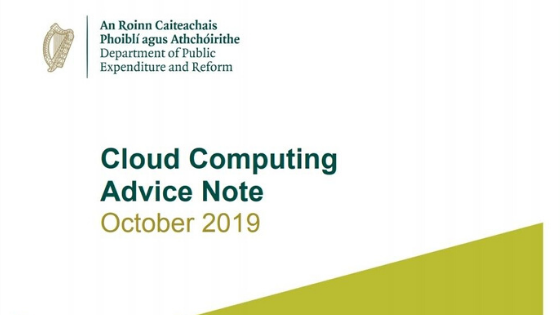
The Public Sector Climate Action Mandate (PSCAM) for 2024 was approved and updated by Government in December 2023 in preparation for Climate Action Plan 2024 (CAP24). The aim of the PSCAM is to support public sector bodies covered by CAP24 that have targets to reduce greenhouse gas emissions and improve energy efficiency by 2030. The Mandate sets out goals and targets that must be actioned by public sector bodies. The 2024 Mandate is an expansion of the 2023 Mandate in which existing actions have been added and expanded. This article will talk through the updated Mandate, explain its purpose and describe the new requirements that it presents.
What is the Mandate?
The aim of the PSCAM is to support public sector bodies in Ireland covered by CAP24 that have targets to reduce greenhouse gas emissions by 51% by 2030. The Mandate also supports targets to improve energy efficiency in the public sector by 50% by 2030. Each public sector body to which the Mandate applies is to develop a Climate Action Roadmap that will outline how it will deliver on energy efficiency and reduced emissions targets. Guidelines to develop Climate Action Roadmaps are provided by the Sustainable Energy Authority Ireland (SEAI) and the Environmental Protection Agency (EPA). It should be noted that the Mandate does not apply to every public sector body. Local Authorities, Commercial Semi- State Bodies, and schools are exempt from adhering to the Mandate. The Mandate specifies how public bodies covered by the Mandate may use Green Public Procurement (GPP) as a process to meet an organisation’s needs for goods, services, works, and utilities by choosing solutions that have a reduced impact on the environment.
Status of the 2023 Mandate
Many of the requirements found in the 2024 Mandate are unchanged from previous years. For example, the requirement to establish and support Green Teams remains unaltered, and senior management and members of State Boards are still required to complete a climate action leadership training course. As well as this, nothing has been removed from the Mandate, meaning that any work that has been completed to fulfil the previous Mandate remains valid. The updated mandate expands on Green Public Procurement requirements outlined in the previous mandate, with additional requirements that relate to construction, water use, paper use, and waste management in an organisation.
Changes from the 2023 Mandate
- A new requirement related to construction that states that best practice guidelines must be adhered to for the preparation of Resource and Waste Management Plans for construction and demolition projects for procured or supported construction projects from 2024.
- A new requirement on targeting food waste on premises from 2024 by using a standardised food waste measurement approach as outlined in the EPA Protocol Pathway.
- A new requirement stating that all contract arrangements related to food and canteen services must also address food waste prevention and food waste segregation.
- A new requirement that states that water refill points should be provided for staff and that the usage of the refill points should be measured and monitored.
- A new requirement to gradually eliminate the use of single use items for events.
- A new requirement for the collection and recycling of produce, requiring that waste collection services are segregated into a minimum of three streams: residual/general waste, recycling waste and organic/biowaste.
- A new requirement related to paper that states that paper consumption should be measured and monitored.
- An amendment stating that the planning of deep-retrofit building measures for Public Sector bodies and sectoral groups should be undertaken at sectoral level for homogenous sectors.
- An amendment stating that public sector bodies with a large estate should develop a portfolio building stock plan, in line with guidance published by SEAI. The previous mandate stated that the EPBD was to be consulted for guidance.
- A new requirement stating that small public sector bodies should include a basic building stock analysis or statement as part of their Climate Action Roadmap, in line with guidance published by SEAI.
- A new requirement stating that public sector bodies with a vehicle fleet should develop a plan for the installation of charging infrastructure in relevant locations and should be included in an organisation’s Climate Action Roadmap.
Taken together, meeting the new Mandate will require attentive work. Crowleys DFK’s team of subject matter specialists are available to assist your development to meet these requirements.

Vincent Teo |

Dr. Conor Dowling |










